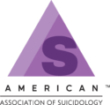The S Word
Posted on
My name is Lisa Klein and I am a documentary filmmaker.
While working on our previous film, Of Two Minds, about people living with bipolar disorder, we learned that suicide is too often an option for people struggling with mental illness. Way too often. But if there ever can be a silver lining to the suicide option, it comes in the form of attempt survivors, people who live to tell their stories. No matter how hard you try to conjure up clues, answers and should haves, all the retrospect in the world cannot take you into the mind of somebody who is willing to die to escape the pain of everyday living.
A suicide attempt survivor can, and will, save lives.
As a survivor of both my father’s and brother’s suicide, I have struggled with the “why”s for years, along with the guilt, shame and confusion that lingers in suicide’s wake. I’ll never know why my dad chose to die. And nobody talked about my brother. My mother could never bring herself to say the words, “My son killed himself.” No mother should have to say that. Ever.
I will probably spend the rest of my life searching for reasons that I can live with. Even though I know that I will never find them. But the insights that we all can gain from those who have stood on the precipice, those who are still there, are worth so much.
And yet …
… that word.
That word, “suicide,” that brings conversations to a halt and evokes primal fears of the darkest of all human experiences. But speaking the word itself is not the problem. The silence that so often follows is.
Our documentary, The S Word, tackles one of the most unfathomable and cloistered issues of our time by exploring suicide from many points of view. We’ve talked to scientists, clinicians and advocates, yet have focused primarily on the intimate voices of those with lived experience – both attempt and loss survivors – and their loved ones.
Many have not only survived, they have courageously turned their experiences into strength and hope in the struggle toward suicide prevention. Speaking with this range of people has provided perspectives, emotions and academic reasoning in a personal way. It puts a human face on this very painful, yet potentially hopeful, topic.
Several members of our filmmaking team have been touched by suicide in some way as well, either as attempt survivors themselves or through family members they have lost. We all have experienced the deafening silence that accompanies the S word. We don’t want to hear that any more.
Since premiering The S Word at the AAS Conference in 2017, we have had the opportunity to screen it at hundreds of venues around the world – including college campuses, high schools, film festivals, mental health and civic organizations. Aside from the U.S., the film has screened in Lithuania, Malaysia, Indonesia and Canada. So far.
Both The S Word and Of Two Minds are currently being distributed educationally by Good Docs and will be available via streaming within the year.
There is no more highly charged and personal issue for me, and for that reason we have expanded beyond the film by highlighting stories on our website. We filmed over 300 hours of footage, and once I realized that was too long for a movie we launched a series of one-minute videos entitled S Word Stories – stories that reach beyond the film.
And I want to acknowledge the American Association of Suicidology for opening their doors to us and introducing us to many of the people who are now in our film. The interviews and the panels we shot there are so vivid that we were faced with way too many editorial choices, particularly for somebody as indecisive as myself. Hence, The S Word Stories.
It is way past time for our society to boldly talk about suicide because no family should have to experience that which radiates outward for generations to come. We will continue to blow the doors off the gallery of secrets and open the conversation, extinguishing the shame and silence that has clung to suicide for way too long.
That’s why we made the film. That’s why we continue to show it. That’s why we want to meet as many people as we can who are living through this, every day.
I’m not going to pretend that there aren’t a lot of tragic stories, because the reality is that losing somebody to suicide is the worst thing ever, from my experience. However, saving lives through really effective suicide prevention, that’s world-changing stuff that so many of you in the suicide prevention community have been working toward for decades.
We are so honored to be part of that.
Thank you.
Related Blogs
American Association of Suicidology Announces Winners of the...
WASHINGTON, D.C. – December 22, 2025 – The American Association of Suicidology (AAS) is proud to announce the winners of the 2025 Paul G. Quinnett Lived Experience Writing Competition. This annual...
To the AAS Community
Washington, D.C., October 23, 2025- To the AAS Community: As many of you already know, Jody Gottlieb passed away unexpectedly on October 1, 2025. In the immediate aftermath of this sad and shocking news, we focuse...
Honoring the Life and Legacy of Jody Gottlieb
Washington, D.C., October 3, 2025- It is with profound sadness that we share the unexpected passing of Jody Gottlieb due to an unexpected medical condition. Jody was not only an accomplished professional, but also a...
